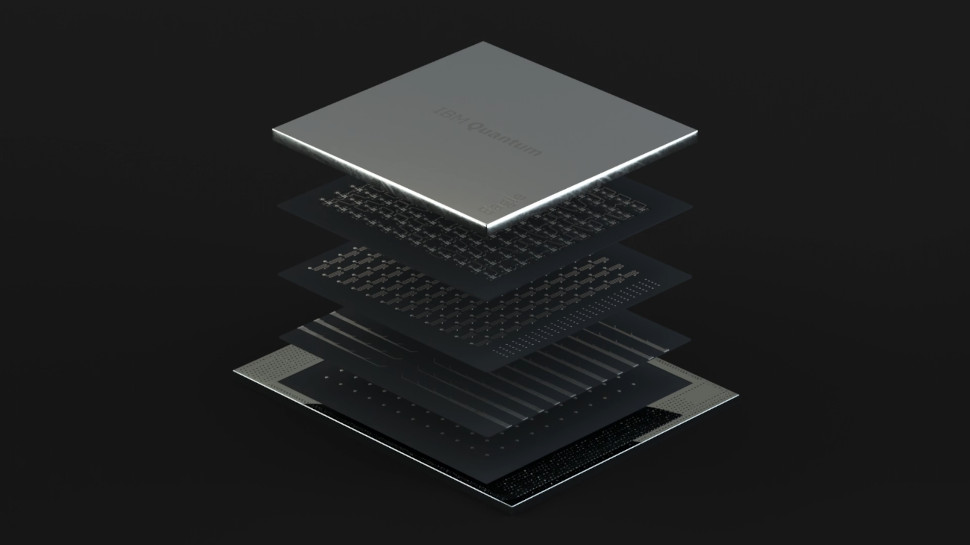IBM unleashes record-breaking new quantum processor
There's a new 127-qubit quantum processor from IBM

IBM has lifted the lid on a new 127-qubit quantum processor, which takes the record for most powerful hardware in its category.
Codenamed Eagle, the new quantum processor is described as the first of its kind whose performance cannot be reliably replicated by a classical computer.
To achieve this “breakthrough”, IBM utilized new qubit arrangement design to reduce error rates and the number of necessary components. More specifically, the firm placed control wiring on multiple levels within the processor, while keeping the qubits on a single layer, enabling a far larger total qubit count.
At the IBM Quantum Summit, an annual event used to announce the latest developments in the field, the company explained it believes Eagle will play a crucial role in “tapping into the massive computing potential of devices based on quantum physics”.
The new processor is available for testing immediately via IBM’s cloud service, but only to a handful of members of the IBM Quantum Network.
127-qubit quantum processor
A qubit is the smallest unit of quantum information, the equivalent of the binary bit of classical computing. Put simply, the greater the number of qubits, the more capable the quantum processor.
According to IBM, the launch of the new 127-qubit processor represents a significant stride towards quantum advantage, the point at which quantum systems outstrip traditional machines in a “meaningful fashion”.
Are you a pro? Subscribe to our newsletter
Sign up to the TechRadar Pro newsletter to get all the top news, opinion, features and guidance your business needs to succeed!
The increased qubit count is expected to unlock a deep pool of opportunities, in fields such as drug discovery, finance, logistics, cybersecurity and more.
“The arrival of the ‘Eagle’ processor is a major step towards the day when quantum computers can outperform classical computers for useful applications,” said Dr. Dario Gil, SVP at IBM.
“Quantum computing has the power to transform nearly every sector and help us tackle the biggest problems of our time. This is why IBM continues to rapidly innovate quantum hardware and software design, building ways for quantum and classical workloads to empower each other.”
Launched last year, the company’s previous generation of quantum processor boasted 65 qubits. And the generation before that had 27 qubits.
Over the next few years, however, quantum processors are expected to become exponentially more powerful. As early as 2023, IBM hopes to launch a quantum processor with a whopping 1,121 qubits.

IBM Quantum System Two
In addition to the new Eagle processor, IBM also offered up details about its next quantum system, creatively named IBM Quantum System Two.
Although IBM Quantum System One set the stage for wider adoption of quantum computing, advances in processor design will soon necessitate new infrastructure. System Two, therefore, will be built to function with future generations of IBM quantum processor: the 433-qubit Osprey, 1,121-qubit Condor and beyond.
When designing the new system, IBM says it focused closely on modularity. In essence, this means the company has been careful to ensure the machine will be equipped to handle more powerful quantum processors as they become available over the next number of years.
System Two is also designed in such a way that could allow for multiple quantum processors to be connected up, presumably yielding significant performance benefits.
“IBM Quantum System Two offers a glimpse into the future quantum computing datacenter, where modularity and flexibility of system infrastructure will be key towards continued scaling,” added Dr. Jay Gambetta, VP Quantum Computing at IBM.
“System Two draws on IBM’s long heritage in both quantum and classical computing, bringing in new innovations at every level of the technology stack.”
A first prototype of IBM Quantum System Two is expected to go live in 2023.
- Here are our lists of the best bare metal hosting and best dedicated server hosting around

Joel Khalili is the News and Features Editor at TechRadar Pro, covering cybersecurity, data privacy, cloud, AI, blockchain, internet infrastructure, 5G, data storage and computing. He's responsible for curating our news content, as well as commissioning and producing features on the technologies that are transforming the way the world does business.